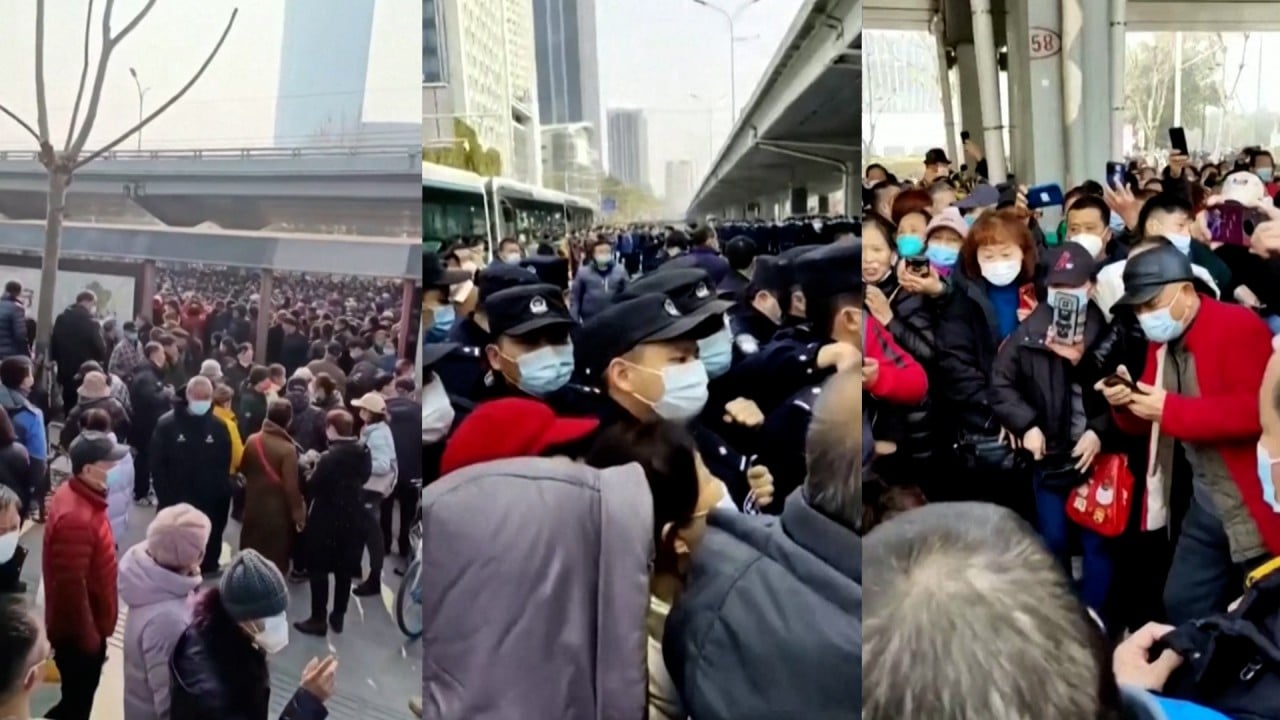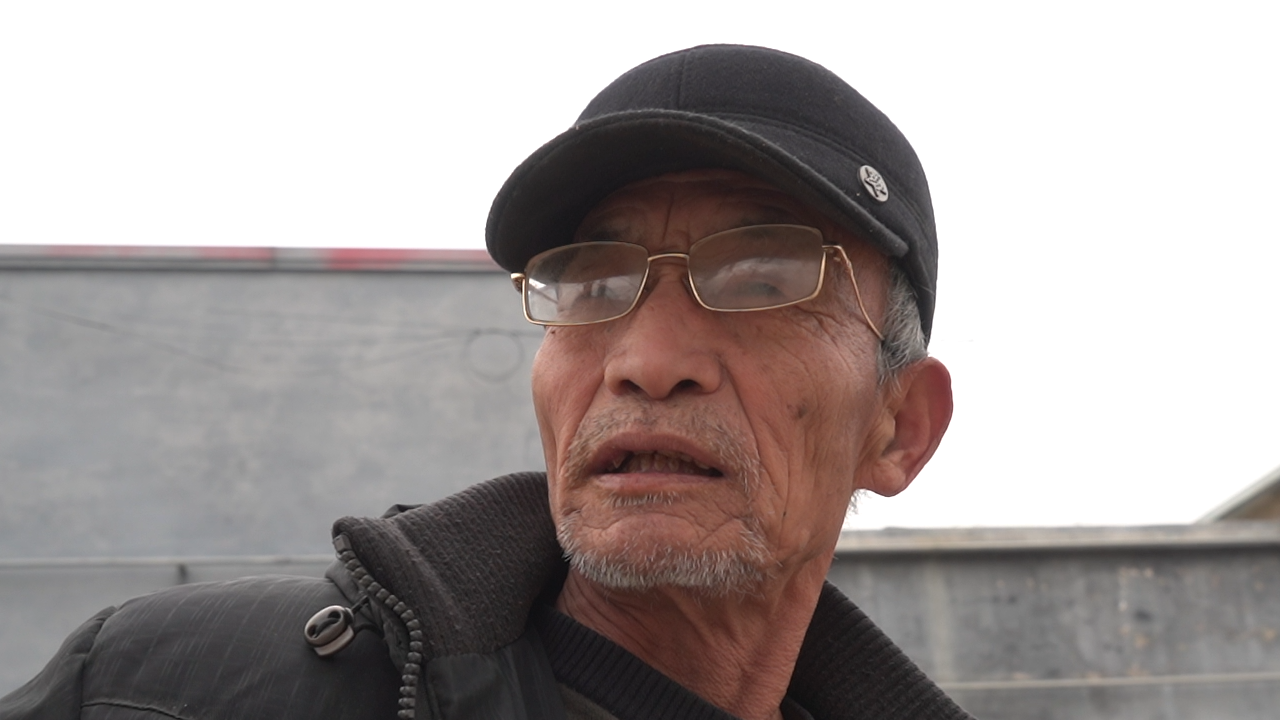Will China’s healthcare crackdown be the magic pill for the medical system’s woes?
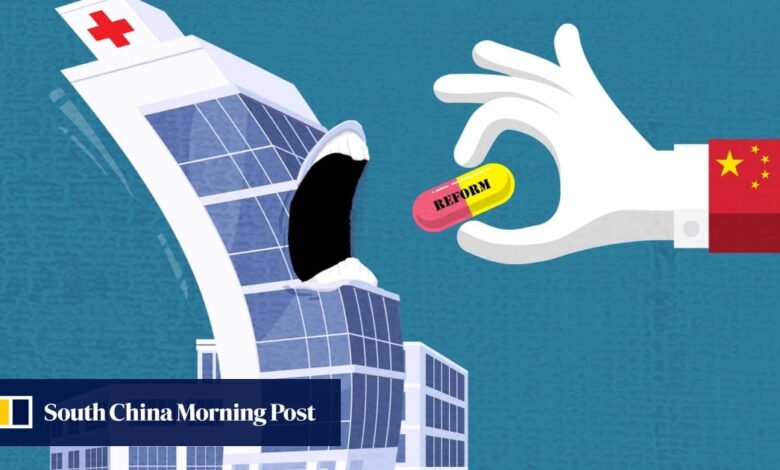
[ad_1]
Rent-seeking became rampant, as pharmaceutical sales teams offered generous kickbacks to doctors and hospital administrators, who in turn spent lavishly on expensive drugs and equipment. Bribes – often in millions of yuan – were disguised as academic conference sponsorship or lecture fees, as well as extravagant junkets.
Done right, China’s healthcare reforms could boost the economy and more
Done right, China’s healthcare reforms could boost the economy and more
The Sanming model aimed to remove the cancers in the system. It implemented centralised procurement, set bulk purchases of drugs at fixed prices, introduced pay ceilings for doctors and linked the salaries of hospital management with how much they cut costs.
Meanwhile, any unused medical pension funds were distributed to hospitals as rewards to encourage doctors to do a better job with the minimum amount of money possible.
In official rhetoric, the reform was hugely successful. President Xi Jinping, who visited Sanming in 2021, praised the reforms of “showing the true value of ‘people first’” as he called on governments across the country to follow its lead.
Since the start of the campaign, hospitals across the country have reported fewer visits and conferences sponsored by pharmaceutical companies, and more standardised drug prescriptions. But experts have questioned whether it has gone far enough.
During the recent anti-corruption crackdown, Amy Zhu, a neurologist in eastern China, said many of her colleagues who used to frequently attend medical conferences had stopped taking part and pharmaceutical sales representatives had stopped their sales calls.
But Zhu said the ongoing blitz had had little impact on frontline doctors like her and she was not aware of any active investigations against her supervisors.
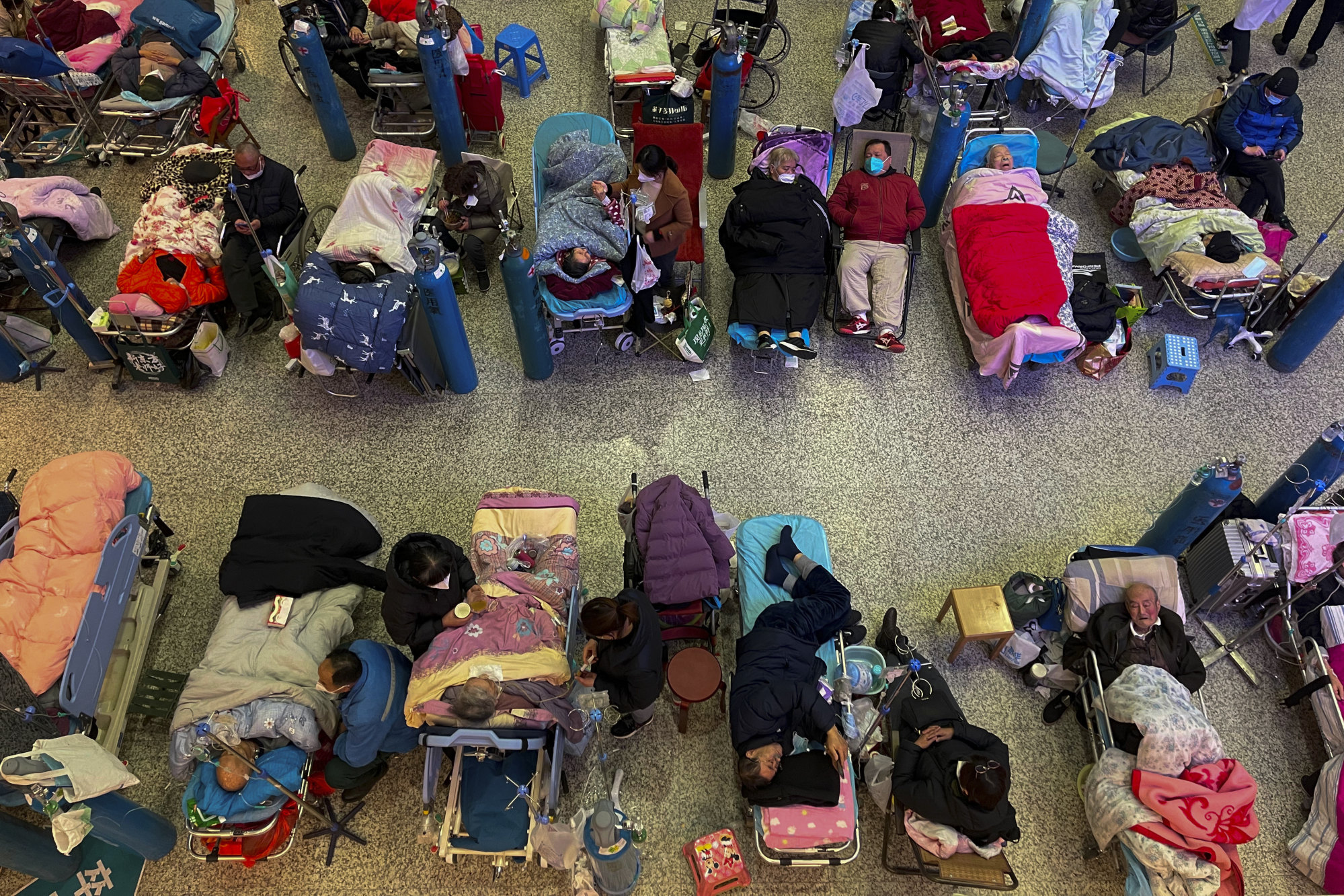
According to data from Wind, a business tracking platform in China, among the more than 5,000 listed companies in the country last year, about 1 per cent, or 57 companies, had sales expenses accounting for more than half of their revenue. Among them, 40 were pharmaceutical companies.
In May, health authorities issued a directive to “correct the abnormalities” and banned junkets disguised as academic conferences. Last month, at least 10 medical conferences and forums were postponed, including those organised by high-profile associations such as local branches of the Chinese Medical Association.
A marketing consultant at a pharmaceutical company, who requested anonymity, said they had stopped all promotional events with hospitals, including doctor visits and academic conferences. His team is now focusing on academic training as it keeps a close watch on the campaign.
The consultant, who has worked as a sales representative for major brands, said he had witnessed at least three anti-corruption campaigns in his more than 20 years in the industry.
“This latest round came because the government is trying to save medical pensions, as the Covid-19 pandemic had cost a lot of resources,” he said.
You should either have a real public hospital, with sufficient funding, or you turn them into private hospitals to compete in the market
But the marketing consultant was worried the latest campaign could go overboard.
“Drug companies and their sales have a role to play in linking how a drug is developed and how it is used by the doctor,” he said. “Doctors need to be informed about the drugs. This link will not disappear.”
Meanwhile Zhu, the neurologist, said more emphasis was now being placed on the national policy of centralised buying and the use of drugs for each hospital. Doctors were now given instructions over the proper use of drugs.
It was an open secret that doctors had their hands in the pot through kickbacks from prescribing expensive and unnecessary drugs and hospitals made their profits with costly diagnoses and examinations.
“Now, we do not prescribe any examinations or drugs unless necessary,” she said.
China’s patients and medical staff pay price when healthcare is corrupt
China’s patients and medical staff pay price when healthcare is corrupt
But others say the campaign has not addressed the crux of the problem – that public hospitals do not receive sufficient funding from the government, thereby forcing them to turn to profit-driven behaviours. Experts say the crackdown shifted the focus away from the government’s responsibility.
Hoping to make up for the healthcare budget deficit, in the 1990s Beijing drastically cut back the central government’s share in the nation’s total healthcare expenditure from 36 per cent to 15 per cent. The move forced many hospitals to find their own ways to make up for the shortfalls.
While on paper the hospitals are only allowed a profit margin from medical services to a maximum of 15 per cent, many hospitals have to struggle to make ends meet, using methods such as mark-ups on medicines and check-up fees.
Shawn Lin, a heart surgeon of a leading hospital in Fujian, said the anti-corruption campaign could only tackle the problem of the personal greed among the hospitals, and stop corrupt directors and pharmaceutical company managers. But, he said, it did not address the systemic issues.
Chinese hospitals had been playing the “cat and mouse” game for decades to remain financially viable, he said.
“At first, hospitals increased the mark-ups on drugs to generate revenue. Then the national medical reform clamped down on the pricing of the hospitals. This drove the hospitals to make money by prescribing more check-ups, such as MRIs, even if they were not necessary. The authorities in turn followed with a new order to regulate such behaviours,” Lin said.
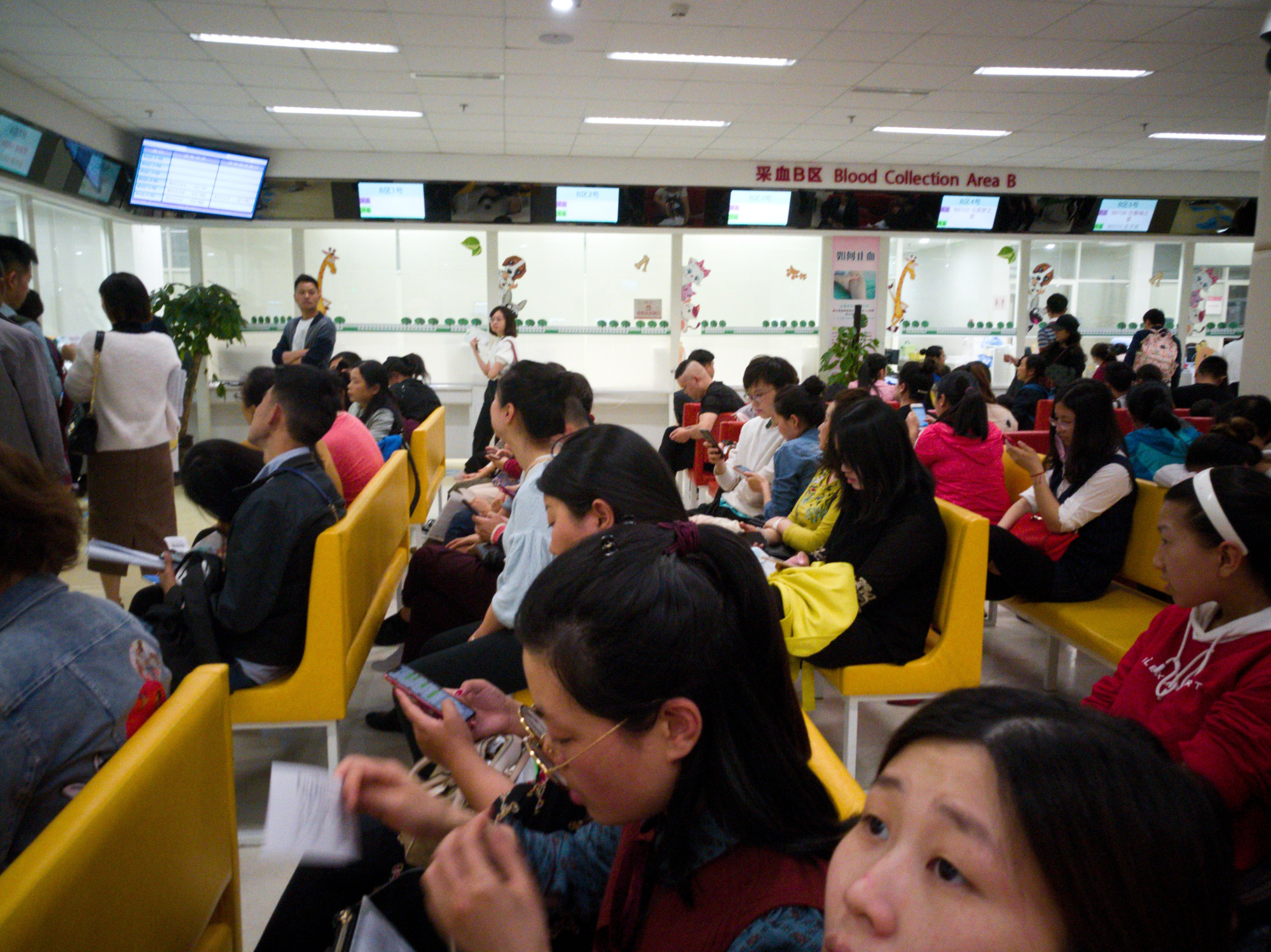
Multiple people interviewed for this article expressed frustration at being a doctor in a system that required a great deal of training and overtime but offered little pay in return.
One source said that a doctor would probably be over 40 and working 10 to 12 hours a day before they could reach a stable position in the system.
Yanzhong Huang, a senior fellow for global health at the Council on Foreign Relations in New York, said the system was bound to breed corruption.
“You should either have a real public hospital, with sufficient funding, or you turn them into private hospitals to compete in the market,” he said.
He expected the latest crackdown would end soon, adding there was little sign that the leadership would institute substantial changes to the system.
Last week at a medical forum, Guo Yanhong, an official with the National Health Commission, cautioned that the anti-corruption campaigns should not go too far in affecting the normal pay of medical staff, discouraging them from taking part in professional conferences, and should not expand arbitrarily in scope.
Other observers said it was possible that China would push for reforms along the lines of the Sanming model after the current campaign has ended, but it would be a difficult path.
James Wu, a Guangdong heart surgeon who now works at a private hospital, said that kind of model would see good doctors eventually leaving public service due to the salary cap.
“I moved to the current private hospital because of the better pay, after 20 exhausting years at a public hospital. I used to perform four to five heart operations every day, but now I only do two to three daily. My pay is much higher, allowing me to finally afford a car and a house,” he said.
Furthermore, he said most Chinese-made drugs were not as competitive with imported drugs in terms of quality. So if the government kept pushing the Sanming model, patients who could afford the better quality, expensive drugs may suffer because they would not be given the option of buying the imported drugs, he said.
Huang observed that medical reforms might not even be pushed after the campaign, noting that during the latest crackdown, state media has often linked individual corruption cases with the public’s difficulty to access cheap, high-quality healthcare.
Previously, the government wanted to reform public hospitals and encourage private hospitals to be more competitive, but during the past three years of the coronavirus pandemic, public hospitals were given more responsibilities, acting as designated hospitals for treatment and quarantine centres, while many private hospitals went broke.
“During three years of Covid-19, the reforms have not advanced and even backtracked,” Huang said.
Additional reporting by Mandy Zuo
[ad_2]
Source link


